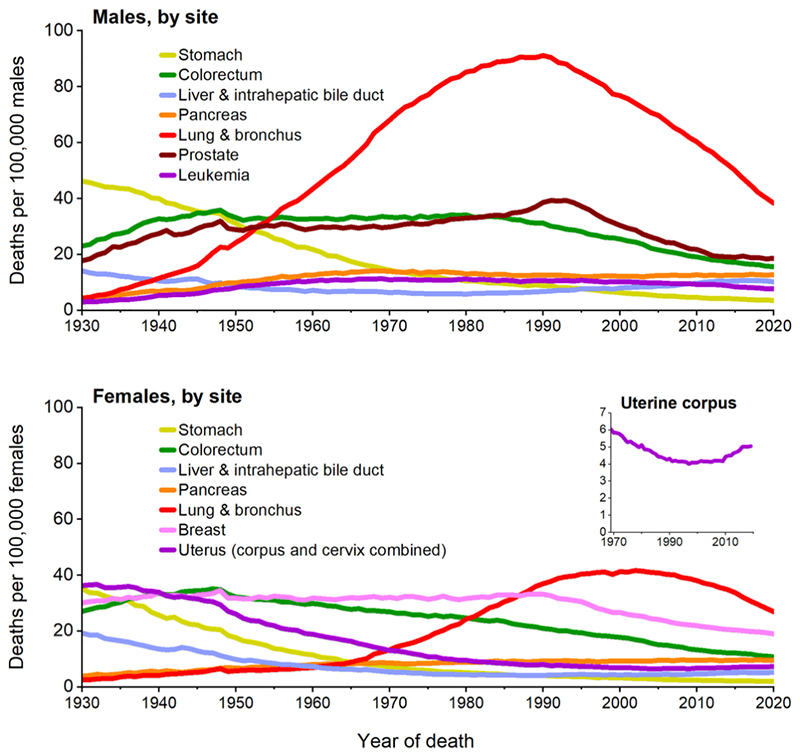Volcanoes are erupting in The Philippines, but on-fire Australia received some welcome rain. The Iran war cries have been called off and The Donald’s military powers are about to be hamstrung by the Senate. Meanwhile, his impeachment trial is starting, and we’re all on Twitter for a front-row seat.
What Could Go Right? Phasing out animal testing
It won’t disappear overnight, but with new regulation, a shift has begun.
This is our weekly newsletter, What Could Go Right? Sign up here to receive it in your inbox every Thursday at 6am ET. You can read past issues here.
Goodbye animal testing, hello third RSV vaccine
This week is one for health news. Three things we see moving in the right direction:
One, the United States Food and Drug Administration (FDA) has lifted the requirement for new medicines to be tested on animals before moving to human trials, a rule that has been in place since 1938. This won’t mean that testing on animals will stop overnight, but it does signal a willingness from the FDA to consider a slow fade-out of it. Concurrently, the FDA is spending $5 million this year to “develop methods to replace, reduce, and refine animal testing.” These “nonanimal methods” include options like tissue-lined chips that are designed to respond like human organs.
This move from the FDA is a thumbs up for those concerned with animal welfare as well as those concerned with getting life-saving drugs more quickly and cheaply to market. Indeed, the idea came from Senator Rand Paul (R–KY) and Senator Cory Booker (D–NJ) on the back of blooming public sentiment. More and more Americans view medical testing on animals to be “morally wrong”—43 percent in 2022, up from 26 percent in 2001. Science has the whole scoop, including how the FDA will continue to ensure the safety of new products, here.
Two, it’s not just Gen Z that has done a good job quitting smoking. A new report documents a 33 percent decline in cancer mortality in the US since 1991, the peak of death rates. While that number accounts for all types of cancers, it is largely a reversal of the tobacco epidemic that started in the 1930s and led to a “rapid increase in lung cancer deaths among men.”

Trends in the US cancer mortality rate by sex and cancer type from 1930 to 2020. Note the dramatic reduction in lung cancer death post-1990. | Credit: ACS Journals
Fewer people smoking, the report says, as well as “improvements in early detection and treatment for some cancers have resulted in a continuous decline in the cancer death rate.” In human terms, that 33 percent translates into four million deaths avoided. The report itself is dense but CNN has a comprehensive overview of it here.
Three, the entry of a third effective vaccine for RSV. On Tuesday, pharmaceutical company Moderna announced that their vaccine, which uses mRNA technology, was 84 percent effective at preventing less severe disease in adults aged 60 and above. Two other RSV vaccines, from Pfizer and Glaxo Smith Kline, neither of which use mRNA, are awaiting FDA approval in the summertime.
By next winter’s Covid-flu-RSV triple threat, then, we should be in better shape than ever before to protect older adults. As for kids, Pfizer is working on a maternal vaccine that would transfer protection to newborns. (P.S. Speaking of the triple threat, an improvement currently sliding under the radar is that we haven’t yet experienced a Covid surge this year, as we already had by now the last two winters.)
Before we go
This 13-minute YouTube video from PBS is an excellent and fair overview of the progress the world has made and not made on climate change.
If cannabis is legalized in a state, does it make sense for cannabis convictions to remain on people’s records? No, it does not, and Connecticut agrees. Earlier in January, lawmakers there expunged the records of more than 43,000 low-level cannabis convictions. In addition to being fair, this is a helpful step when it comes to reducing racial disparities in the US’ criminal justice system.
We spotted this piece of news in Jessica Yellin’s News Not Noise newsletter: After only 64 percent of Apple’s shareholders approved his compensation in 2021, “head of Apple Tim Cook took a voluntary 40 percent pay cut this year—cutting his target compensation from over $84 million in 2022 to $49 million for 2023.” As Yellin points out, where Apple goes, other companies follow. Could we see the bloated CEO salary trend finally start to deflate?
Below in the links section, CRISPR versus cancer, MDMA for PTSD, diversity in Congress, and more.
Progress, Please
(Found good news? Tweet at us @progressntwrk or email.)
Other good stuff in the news 🛰️
Energy & Environment:
- Here are all the positive environmental stories from 2023 so far | Euronews
- EU solar deployment rate soars by almost 50% in 2022 | Energy Monitor
- Opinion: Electric vehicles keep defying almost everyone’s predictions | The New York Times
Science & Tech:
- Elon Musk’s Starlink is only the beginning | Vox
- New killer CRISPR system is unlike any scientists have seen | Freethink
- A powerful laser can redirect lightning strikes | Science News
Politics & Policy:
- Illinois’ governor has signed an assault weapons ban | CBS Chicago
Public Health:
- Pfizer to sell all its drugs in low-income countries at non-profit price | Reuters
- Medicare begins to rein in drug costs for older Americans | The New York Times
- 988 Lifeline sees boost in use and funding in first months | NPR
- Feeling depressed? Performing acts of kindness may help | Ohio State News
- Study moves therapeutic use of MDMA toward FDA approval | The Intercept
- Google sister company aims to eradicate dengue from a tropical country | Freethink
- All US military veterans in suicidal crisis are now eligible for free care at any VA or private facility | NBC News
Society & Culture:
- Body positivity is a bona fide movement. Why not face positivity too? | Shondaland
- 118th Congress is most racially diverse to date | The Hill
- 118th Congress breaks record for lesbian, gay and bisexual representation | Pew Research Center
- Why the trend toward remote work isn’t going to fade in 2023 | Los Angeles Times
TPN Member originals 🧠
(Who are our Members? Get to know them.)
- America is on the right track | David Brooks
- Martin Luther King Jr.’s push for material redistribution | Matthew Yglesias
- Toxic polarization poisons democracy. The antidote? Talk to each other. | John Wood Jr.
- What the Cori Bush-Byron Donalds clash tells us about Black American politics | Theodore R. Johnson
- Reviving America, one college town at a time | James Fallows
- Why authoritarians hate the internet | Faisal Saeed Al Mutar
- The party’s over for us. Where do we go now? | David Brooks
- Can race be transcended? | Thomas Chatterton Williams
- Traditional immigration policy has failed. Biden is right to try reform it. | Fareed Zakaria
- An epic debate on Ukraine and US foreign policy | Robert Wright
- The state of American entrepreneurship: everything you should know | James Pethokoukis
- Regulatory rush job will be a disaster for advanced nuclear energy | Ted Nordhaus
- On noncompete agreements | Scott Galloway
- How to fix drug shortages with tax breaks | Ezekiel J. Emanuel
- Rogue states gone nuclear and the watchdog working to avert disaster | Ian Bremmer
Department of Ideas 💡
(A staff recommendation guaranteed to give your brain some food for thought.)
Bending the moral arc | Skeptic
Honoring Dr. Martin Luther King Jr. nearly 60 years after his “How Long” speech in Montgomery, Alabama on March 25, 1965
Why we picked it: Is cumulative human progress a myth? Are things like moral and social progress actually achievable, or do the concepts depend too much on our individual, and disparate, values? Is the arc of progress really an endless circle of tradeoffs? I have at least as many doubts as I do hopes, but this piece fed the latter. —Brian Leli
New Member Alert
Historian Rutger Bregman has published five books on history, philosophy, and economics. His books Humankind (2020) and Utopia for Realists (2017) were both New York Times Bestsellers and have been translated in more than 40 languages. Bregman has twice been nominated for the prestigious European Press Prize for his work at The Correspondent, an online platform for unbreaking news, committed to collaborative, constructive, ad-free journalism. He lives in Holland.
Watch Bregman’s TED Talk on poverty and guaranteed basic income.
Until Next Time
All in favor of letting the bus drivers be our societal guides say aye.👇



